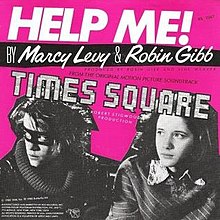
Cucumber Castle is the seventh studio album by the Bee Gees, released in April 1970. It was produced by Barry Gibb, Maurice Gibb, and Robert Stigwood. It consists of songs from their television special of the same name, which was named after a song on their 1967 album Bee Gees' 1st. Cucumber Castle is the only Bee Gees album not to feature any recorded contributions from Robin Gibb, as he had left the group before the album was recorded.

Marcella Levy, known professionally as Marcy Levy and Marcella Detroit, is an American singer, songwriter, and guitarist. She co-wrote the 1977 Eric Clapton hit "Lay Down Sally" and released her debut studio album Marcella in 1982. She joined Shakespears Sister in 1988 with ex-Bananarama member Siobhan Fahey. Their first two studio albums, Sacred Heart (1989), and Hormonally Yours (1992), both reached the top 10 of the UK Albums Chart. Detroit sang the lead vocals on their biggest hit, "Stay", which spent eight consecutive weeks at number one on the UK Singles Chart in 1992. Detroit left the band in 1993 and had a UK top 20 hit with "I Believe" in 1994. She formed the Marcy Levy Band in 2002, and finished third in the 2010 ITV series Popstar to Operastar.

"Night Fever" is a song written and performed by the Bee Gees. It first appeared on the soundtrack to Saturday Night Fever on RSO Records. Producer Robert Stigwood wanted to call the film Saturday Night, but singer Robin Gibb expressed hesitation at the title. Stigwood liked the title Night Fever but was wary of marketing a movie with that name. The song bounded up the Billboard charts while the Bee Gees’ two previous hits from Saturday Night Fever soundtrack were still in the top ten. The record debuted on the Billboard Hot 100 Chart at #76, then leaped up 44 positions to #32. It then moved: 32–17–8–5–2–1. It remained at #1 for eight weeks, and ultimately spent 13 weeks in the top 10. For the first five weeks that "Night Fever" was at #1, "Stayin' Alive" was at #2. Also, for one week in March, Bee Gees related songs held five of the top positions on the Hot 100 chart, and four of the top five positions, with "Night Fever" at the top of the list. The B-side of "Night Fever" was a live version of "Down the Road" taken from the Bee Gees 1977 album, Here at Last... Bee Gees... Live.
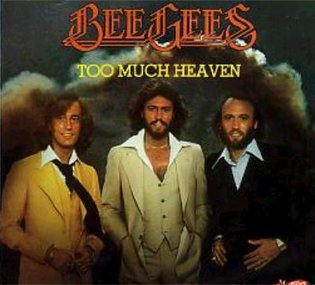
"Too Much Heaven" is a song by the Bee Gees, which was the band's contribution to the "Music for UNICEF" fund. They performed it at the Music for UNICEF Concert on 9 January 1979. The song later found its way to the group's thirteenth original album, Spirits Having Flown. It hit No. 1 in both the US and Canada. In the United States, the song was the first single out of three from the album to interrupt a song's stay at #1. "Too Much Heaven" knocked "Le Freak" off the top spot for two weeks before "Le Freak" returned to #1 again. "Too Much Heaven" also rose to the top three in the UK. In the US, it would become the fourth of six consecutive No. 1s, equalling the record set by Bing Crosby, Elvis Presley, and the Beatles for the most consecutive No. 1 songs. The six Bee Gee songs are "How Deep Is Your Love", "Stayin' Alive", "Night Fever", "Too Much Heaven", "Tragedy" and "Love You Inside Out". The songs spanned the years of 1977, 1978 and 1979.

Spirits Having Flown is the fifteenth album by the Bee Gees, released in 1979 by RSO Records. It was the group's first album after their collaboration on the Saturday Night Fever soundtrack. The album's first three tracks were released as singles and all reached No. 1 in the US, giving the Bee Gees an unbroken run of six US chart-toppers in a one-year period and equaling a feat shared by Bing Crosby, Elvis Presley, and The Beatles. It was the first Bee Gees album to make the UK top 40 in ten years, as well as being their first and only UK No. 1 album. Spirits Having Flown also topped the charts in Australia, Canada, Germany, New Zealand, Sweden and the US. The album has sold more than 20 million copies worldwide.
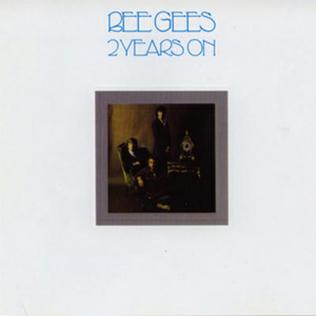
2 Years On is the eighth studio album by the Bee Gees, which reached No. 32 on the US charts. Released in 1970, the album saw the return of Robin Gibb to the group after an earlier disagreement and subsequent split following Odessa. 2 Years On was the first album with drummer Geoff Bridgford, who remained a full-time member of the group until 1972 although he was not pictured on the sleeve. The best-known track is "Lonely Days". Released as the first single by the reunited brothers, it charted high in the US, but peaked at No. 33 in the United Kingdom.

"How Deep Is Your Love" is a pop ballad written and recorded by the Bee Gees in 1977 and released as a single in September of that year. It was ultimately used as part of the soundtrack to the film Saturday Night Fever. It was a number-three hit in the United Kingdom and Australia. In the United States, it topped the Billboard Hot 100 on 25 December 1977 and stayed in the Top 10 for 17 weeks. It spent six weeks atop the US adult contemporary chart. It is listed at No. 27 on Billboard's All Time Top 100. Alongside "Stayin' Alive" and "Night Fever", it is one of the group's three tracks on the list. The song was covered by Take That for their 1996 Greatest Hits album, reaching No. 1 on the UK Singles Chart for three weeks.

"How Can You Mend a Broken Heart" is a song released by the Bee Gees in 1971. It was written by Barry and Robin Gibb and was the first single on the group's 1971 album Trafalgar. It was their first US No. 1 single and also reached No. 1 in Cashbox magazine for two weeks.

"Don't Forget to Remember" also called "Don't Forget to Remember Me" is a country ballad recorded by the Bee Gees, from the album Cucumber Castle. The song was written by Barry and Maurice Gibb. It was produced by the band with Robert Stigwood.
"Desire" is a song written by Barry Gibb, Robin Gibb and Maurice Gibb, and originally recorded by the Bee Gees in 1978 during the sessions of Spirits Having Flown. Blue Weaver recalls that this version was originally intended for the album. After spending weeks on it, they dropped it from the album lineup. Weaver also recalls that the version sounded like "Too Much Heaven".
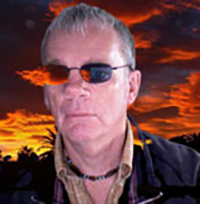
Derek John "Blue" Weaver is a Welsh rock keyboardist, session musician, songwriter and record producer.

"First of May" is a song by the Bee Gees with lead vocals by Barry Gibb, released as a single from their 1969 double album Odessa. Its B-side was "Lamplight". It also featured as the B-side of "Melody Fair" when that song was released as a single in the Far East in 1971 as well as in 1976 and 1980 on RSO Records. It was the first Bee Gees single to be released after lead guitarist Vince Melouney had left the group.

"I Just Want to Be Your Everything" is a song recorded by Andy Gibb, initially released in April 1977 by RSO Records as the first single from his debut album Flowing Rivers (1977). The song was written by Gibb's older brother Barry, and produced by Gibb-Galuten-Richardson. It reached number 1 on the Billboard Hot 100 for three weeks, starting on the week ending 30 July 1977, and again for the week ending 17 September 1977. It was Gibb's first single released in the United Kingdom and United States. His previous single, "Words and Music" was only released in Australia. It is ranked number 26 on Billboard's 55th anniversary All Time Top 100.

"Guilty" is a vocal duet between Barbra Streisand and Barry Gibb. The song was written by all three Bee Gees: Barry, Robin & Maurice Gibb. Released as a single from Streisand's 1980 album of the same name, "Guilty" peaked at No. 3 on the US Billboard Hot 100 chart and No. 5 on the adult contemporary chart. In the UK, the song reached No. 34 on the UK Singles Chart. The single was certified gold by the RIAA. In addition, "Guilty" won a Grammy Award in the category Best Pop Vocal Performance, Duo or Group. The song also appeared on the 2001 Bee Gees compilation, Their Greatest Hits: The Record.

"Mr. Natural" is a song by the Bee Gees, written by Barry and Robin Gibb. On 29 March 1974, it was released as a single and also released on the album of the same name in 1974. It was backed with a folk rock number "It Doesn't Matter Much to Me". The group's first single which was produced by Arif Mardin.

"Run to Me" is a song by the Bee Gees, the lead single from the group's album To Whom It May Concern (1972). The song reached the UK Top 10 and the US Top 20.
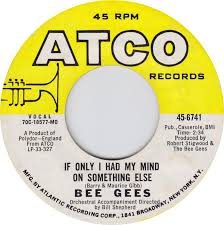
"If Only I Had My Mind on Something Else" is a pop ballad recorded by the Bee Gees. It was written by Barry and Maurice Gibb. It was the first track on the album Cucumber Castle. A remastered version was released in 1990 on Tales from the Brothers Gibb.

"Fanny (Be Tender with My Love)" is a song written and performed by the Bee Gees for their Main Course album in 1975. It was the third single release from the album, peaking at number 12 on the United States Billboard Hot 100 and number two in Canada. According to Maurice Gibb, producer Quincy Jones called "Fanny" one of his favorite R&B songs of all time.

"(Our Love) Don't Throw It All Away" is a song penned by Barry Gibb and Blue Weaver and recorded by the Bee Gees in 1977 on the Saturday Night Fever sessions but was not released until Bee Gees Greatest (1979). A different version was released in September 1978 by RSO Records as the third single by Andy Gibb from his second studio album Shadow Dancing. His version was produced by Gibb-Galuten-Richardson.

Sunrise is the 11th and final album by American soul singer Jimmy Ruffin, it was released in May 1980 and was produced by Robin Gibb and Blue Weaver. The songs were co-written by Gibb either with Weaver and/or his brothers. This album was released in US, Netherlands, UK, Norway, and Germany. The lead single "Hold On " reached top ten in UK and US.
